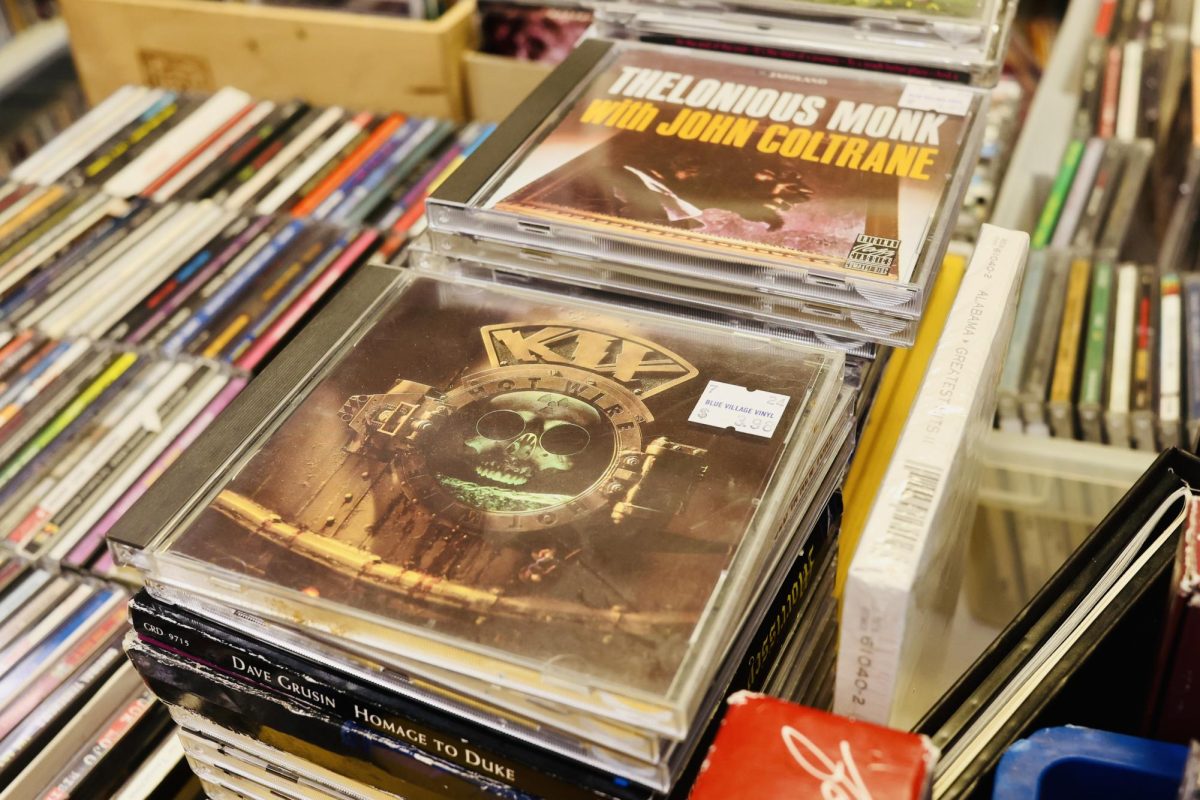Imagine if the Library of Alexandria were burned down in our modern day once again— all its written works, references and art forms from across history lost to time, never to be documented or viewed again.
Though convenient ways of saving and preserving many media formats are readily available to people, the reality is many cultural and historical artifacts are either completely lost to time, have only fragments of entire works remaining, or are scarce and not available to the public.
Jesus Perez, an art student at College of DuPage, often thinks about a highly anticipated video game demo that seemed to vanish before his eyes.
“My first experience with lost media was with the infamous ‘P.T’ by Hideo Kojima,” he said. “It was a horror demo for a [later] canceled ‘Silent Hill’ installment. It was a horror experience like no other that many have tried and failed to replicate over the last decade. This was one of my very first gaming memories that I can recall remembering so fondly, and a time where gaming started to become a more digital forefront. To have an experience like this taken away from me unknowingly was upsetting.”
This experience prompted Perez to research “P.T.”’s disappearance, which introduced him to more fascinating lost media mysteries.
“Completely by chance, as soon as I looked up why ‘P.T.’ was removed, I stumbled across a whole sea of games, demos, lost scripts and more that have been lost to time and corporations,” he said. “‘P.T.’ was one of the most famous ones, but there was more obscure and more experimental content that has been lost to time. It was kind of like a can of worms that was open to me that only further intrigued my interest to why this is still an occurrence in modern times.”
For other lost media enthusiasts, their interest is primarily catalyzed by popular content creators and YouTubers who produce cleverly crafted and well-edited video essays and commentary on the topic.
Cass Ramos, an education student at College of Dupage, said that their fascination with lost media was catalyzed by YouTube videos from a specific content creator, noting that different genres and statuses of lost media evoke different emotions.
“I used to watch a lot of videos from this YouTuber named Blameitonjorge,” they said. “All of his content was discussing lost media; things ranging from PSAs, video games, cartoons. The Lost Media Wiki (LMW) has multiple statuses for different kinds of genres. Finding stuff like silly commercials, shows or video game promotional material makes me feel happy and nostalgic due to the era of gaming and the time I grew up in. Things that’ll never be found frustrate me, but I know that there’s usually a reason for their non-existence.”
This widespread intrigue with lost media can be explained psychologically by a combination of factors, including nostalgia and the Zeigarnik effect, which is the tendency for an unfinished or incomplete activity to maintain priority in one’s memory. Simone Redaelli, Ph.D., also notes in a Psychology Today article, “Mystery is linked to the concept of fascination. Fascination occurs when our attention is involuntarily captured by a given environment.” In other words, because we do not typically expect art forms, historical documents and creative works to get lost or go missing, the instances in which they do go missing pique our interest further.
Ramos commended the efforts of worldwide searches and finds for lost cultural artifacts that often take place, noting that they foster a sense of community among lost media enthusiasts.
“I think it’s a valiant effort,” they said. “The internet banding together to find this kind of stuff fills me with a feeling of camaraderie I haven’t felt in ages. It’s also awesome seeing everyone’s reaction to finding something [previously missing].”
Among notable previously lost media later recovered include 2 of 97 early episodes of “Doctor Who” discovered in November 2023, as well as the 1928 film “The Passion of Joan of Arc” thought to have been lost in a fire whose original version was discovered in a Norwegian mental facility in 1981.
Perez noted how corporate greed can often hinder historical and cultural artifacts from being preserved.
“I think it’s now more important than ever that efforts [to preserve media] are revved up, due to the fact it’s becoming clear now that corporations and greedy figures want to get rid of older media they deem unworthy or a thorn to their image,” he said. “Especially with how films are being lost these days for tax write-offs that the studios themselves have caused, it’s important that we keep the legacy of these pieces of media intact and well alive so that future generations can see what was lost but also what could’ve been and can be used as inspiration for more ideas.”
Snowden Becker, a professional media preserver and archivist, testified to the importance of preserving media in a historical and cultural context in an interview for MASV.
“I, as an archivist, bring a certain historical awareness and a sense of urgency that’s informed by knowing what happened a hundred years ago…” Becker said. “We have since discovered is that those films do have value, they do have an afterlife. What we’re seeing right now is that we’re more than ever aware of how media is informing a cultural conversation.”
Ramos provided insights on just how much media, especially from the early and mid-twentieth century, is lost to time, as well as the weight and significance this carries upon cultural and media history.
“An astounding [estimated] 75% of silent-era films are lost to time, and only half of sound films from the ‘50s are gone as well,” Ramos said “These are incredible pieces of history that have perished from either studio fires— which were unfortunately common— and just age. These were landmark titles that solidified movies as an art form. They’re just as important as books or documents!”
They suggested the key to media preservation lies in documenting digital files of cultural artifacts and keeping them safe in archive websites.
“I think that it lies in internet preservation,” they said. “Most media can be salvaged and saved by either personal means, USB, DVR, VHS in some cases, or by the Internet Archive, which is a wonderful website that houses old, defunct websites and various forms of media. If the archive grows, the amount of content housed and discovered will grow along with it. It’s like the modern Library of Alexandria. The only way to preserve this stuff is to fund the archive! The Internet Archive is a safe haven of content, common or lost. Without it, Most MP3, CDROM, MP4 and other contents will just vanish! I think the most important part is keeping these sites safe. And of course, help with searches, support the Lost Media Wiki (LMW) and keep a lookout.”
Perez proposed a different method for ensuring media preservation for future generations, highlighting his stance on preserving media in the form of physical copies.
“I think now is the time for action as we are headed to a future where many forms of art are being pumped out for cash,” he said. “But many are also being disregarded and pushed to a digital format where true ownership simply does not exist. As someone who deeply cares about physical media, there’s many ways of preserving forms of art with discs and documents of production. It’s simple to just document the making but also the film itself. Music has the CD and vinyl format that is, thankfully, still around and many streaming services allow downloading to devices to which you can port them to CDs. There’s many ways, it just depends on those who care about them to stand up for the art they want to stay available for everyone to see and not fade away like so many lost media pieces have.”
Media is a testament to history and culture. Books, film, music, documents, footage all tell a story and inform us on what people cared about at what time periods and why.
The Lost Media Wiki is a collaborative effort and the most well-known reference database for lost media today. The organization invites anyone fascinated by lost media to participate in current searches for heavily sought-after cultural artifacts.









